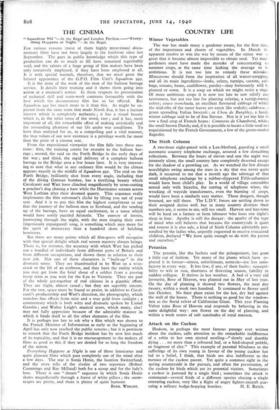The war has made many a gardener aware, for the
first tin. of the importance and charm of vegetables. In March apparent resolve to win the war by means of the onion was great that it became almost impossible to obtain seed. Yet mane gardeners must have made the mistake of concentrating on summer crops, at the same time lacking the. courage to be ambitious. It is not too late to remedy these mistake: Minestrone should form the inspiration of all winter-cropping, and all its main ingredients—leeks, celery, turnips, carrots, cab- bage, tomato, beans, cauliflower, parsley—may fortunately still be planted or sown. It is a soup on which we might resist a siege. Of more ambitious crops it is now too late to sow salsify and scorzonera, but not too late for planting celeriac, a turnip-rooted celery; couve tronchuda, an excellent flavoured cabbage of which the mid-ribs of the outer leaves are eaten like seakale; calabrese, a green spreading Italian broccoli ; or Chou de Burghley, a hardy winter cabbage said to be of fine flavour. Nor is it yet too late to sow a final crop of French beans : Comtesse de Chambord, white; the small brown Dutch; and, if it is possible to locate a little seed not requisitioned by the French Government, a few of the green-seeded flageolet.






























 Previous page
Previous page